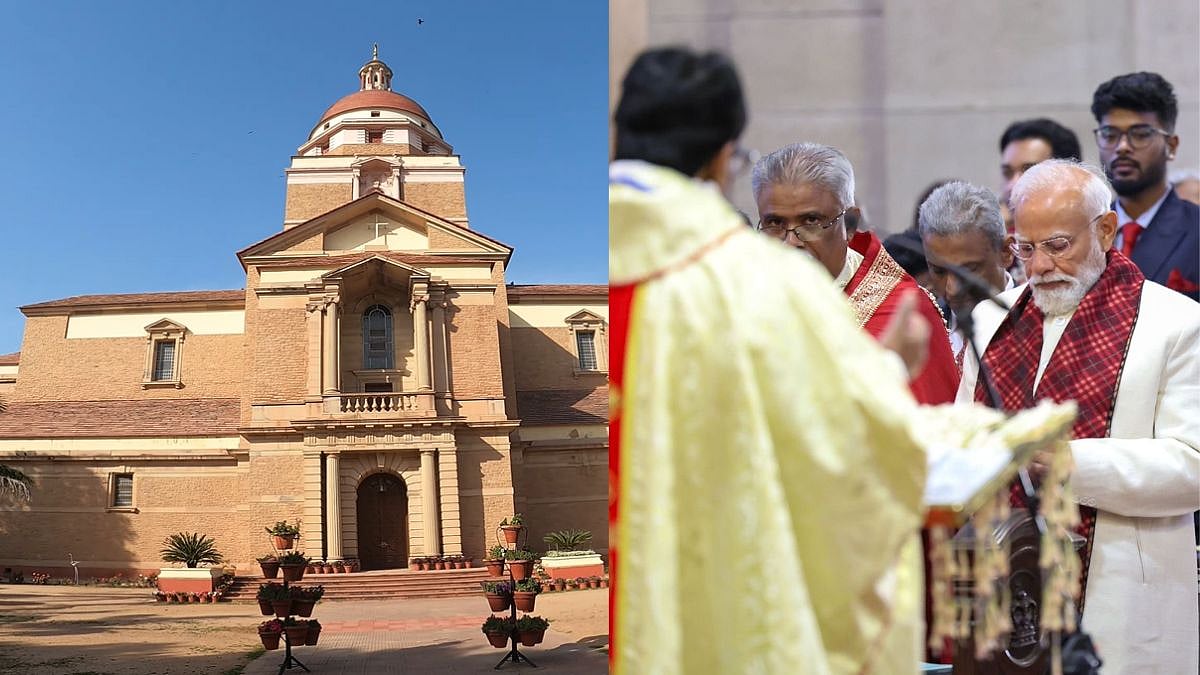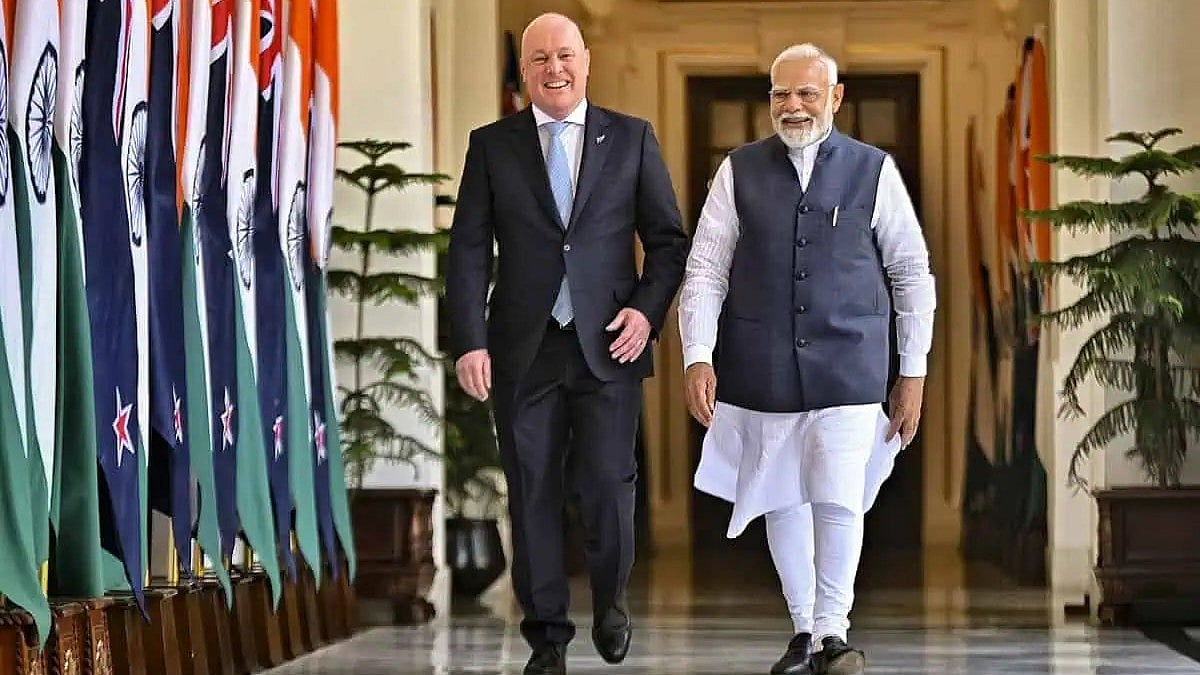Despite the belated decision to keep the unconstitutional and illegal decision to sack the jailed minister, Senthil Balaji, on hold, significant damage has already been done. This dangerous action could potentially be the first such incident in Indian history, although successive Congress and BJP governors have previously misused their powers at the behest of the centre. However, it is worth noting that in numerous cases, the high court and apex court have acted as saviors of the constitution, safeguarding its integrity and upholding the principles of justice.
The genesis of Tamil Nadu Governor R.N. Ravi's decision to dismiss Balaji can be traced back to January 2023. During that time, the governor omitted certain paragraphs from the text prepared by Chief Minister M.K. Stalin's government and walked out of the assembly. This incident was reminiscent of a similar and bizarre episode when the then Governor of West Bengal, Padamja Naidu, walked out of the assembly in February 1965.
Fallout of the decision
Legal experts assert that the action taken by the Tamil Nadu Governor has added another chapter to the prevailing trend of governors acting in a whimsical manner to undermine the principles of the Indian constitution, often at the behest of the center. According to Article 164, it is mandatory for the governor to appoint or dismiss a minister based on the advice of the chief minister. However, this provision was blatantly disregarded by the TN Governor, setting a detrimental precedent, even though he has temporarily withheld his order and sought legal opinion from the attorney general.
Critics of the governor express their dismay over his delayed action, highlighting that he could have consulted legal luminaries prior to acting in a manner contrary to the constitution. Furthermore, this incident is not the first time the governor has shown disregard for constitutional norms, and the lack of reprimand from the center only serves to encourage other "puppet governors" to similarly disregard the constitution.
The centre's failure to take strict action in such cases keeps the door open for governors to interfere with elected governments that are not aligned with the ruling party at the centre. This situation poses a threat to the democratic fabric of India. If the centre does not take any action against the Tamil Nadu governor, it will likely encourage governors in non-BJP ruled states to engage in unconstitutional activities, which could ultimately undermine the foundations of democracy in the country.
Opposition parties cry foul
The opposition parties in Tamil Nadu are up in arms against the governor and urged the centre to take action against him. Assembly speaker, M Appavu, has lambasted the governor and criticised the illegal action which smacks of some 'hidden agenda'. Appavu is aghast over the action of the governor and unable to understand the reason for the confrontationist attitude adopted by the governor with the state government.
Governors are blocking bills and recommendations of elected Chief Ministers
The trend of unconstitutional actions extends beyond Tamil Nadu, as governors are also blocking recommendations made by non-BJP ruled Chief Ministers. These actions include preventing the convening of assembly sessions, appointing vice chancellors without consulting CMs, and engaging in executive activities, all of which are not permitted by the constitution. The current situation in Tamil Nadu involves a standoff between the governor and the state government regarding the governor's refusal to give assent to a bill passed by the assembly.
The Tamil Nadu government had filed a petition with the President of India, Draupadi Murmu, expressing concerns about the governor's actions in blocking bills that impact the functioning of the government. It is worth noting that in March of this year, eight political parties had collectively written a letter to Prime Minister Narendra Modi, raising complaints about the misuse of powers by governors and lieutenant governors in various states. The letter specifically highlighted illegal actions by governors and the misuse of investigating agencies in states such as Rajasthan, Telangana, Tamil Nadu, Punjab, Maharashtra, among others. However, no substantial action has been taken in response to these concerns and complaints.
Governor initially tried to justify his action, but later relented
Interestingly, the governor initially attempted to justify his action, suggesting that TN minister Balaji was interfering with an investigation related to corruption cases, which led to his removal from the cabinet. However, the opposition criticized the governor's action, presenting a significant issue to challenge the center and accusing it of undermining democratic principles.
Governor Ravi assumed office in September 2021 and began clashing with the elected government of M.K. Stalin. The DMK parliamentary leader, T.R. Baalu, called for his resignation after he failed to forward a bill, passed by the assembly, to exempt government seats in undergraduate medical and dental courses from the National Eligibility-cum-Entrance Test (NEET). In West Bengal, the state government passed a bill in the assembly to strip the governor of the designation of chancellor of universities. The governor had been appointing vice chancellors without consulting the state government, which sparked strong opposition.
Similarly, in Rajasthan, the chief minister recommended the urgent convening of the assembly session to prove his majority, but the governor delayed it, seemingly providing an opportunity for defectors led by Sachin Pilot to attempt to topple the government. In a late-night move, former Maharashtra governor Bhagat Singh Koshyari's decision to ask the then Chief Minister Uddhav Thackeray to seek a trust vote was not upheld by the Apex Court, prompting his resignation. There have been several instances where governors or lieutenant governors have disregarded chief ministers' recommendations to convene assembly sessions.
As constitutional experts point out, it is the responsibility of the center to discipline governors and remove those who engage in unconstitutional acts. Taking such actions would significantly contribute to protecting the spirit of democracy and the constitution of India.










